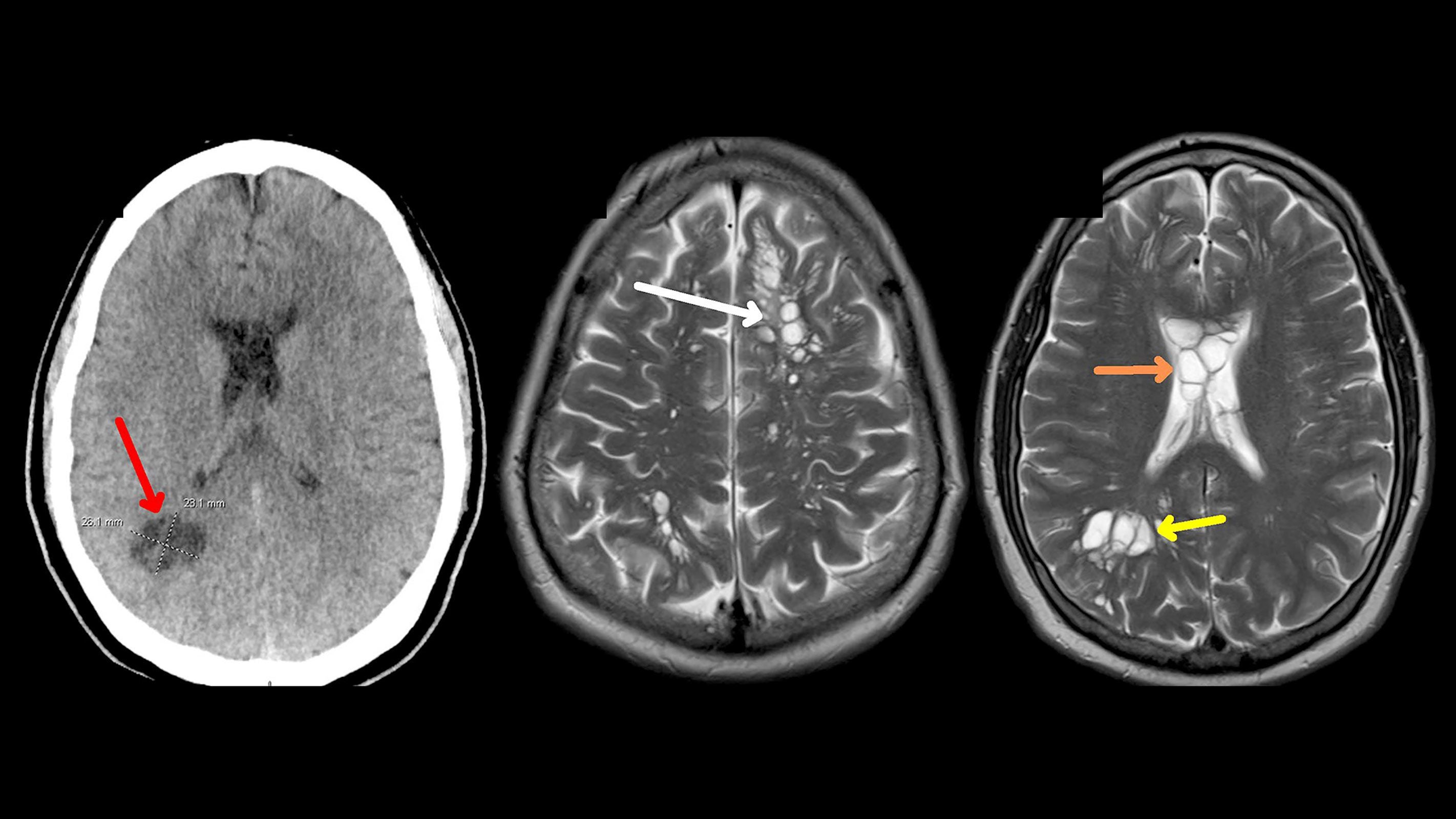Man’s migraines likely caused by parasitic tapeworm larvae in his brain, doctors say
(CNN) — A Florida man with worsening migraines was found to have parasitic tapeworm larvae in his brain, according to a report published this month in the American Journal of Case Reports. Doctors believe that the tapeworm infection originated from his habit of eating undercooked bacon.
The unidentified 52-year-old initially went to see the doctor because his migraines had suddenly worsened over four months. They were happening almost weekly, were very painful and were not responding to migraine medications, according to the report.
His doctor ordered a CT scan, which showed multiple cysts – fluid-filled sacs – throughout his brain. Initially suspecting that he may have a rare neurologic condition called congenital neuroglial cysts, doctors admitted him to an Orlando hospital to consult with neurosurgery.
Further labs and imaging at the hospital showed that the cysts were parasitic tapeworm larvae that had taken up residence in his brain and caused an infection called neurocysticercosis, the report said.
Cysticercosis is a parasitic tissue infection that happens when a person swallows tapeworm eggs from the feces of a person who has intestinal tapeworm. The tapeworm eggs then become larval cysts that can infect the brain, muscles or other tissues, according to the US Centers for Disease Control and Prevention.
Neurocysticercosis is the form of the condition in which larvae infect the brain. it is a major cause of adult-onset seizures in low-income countries with poor sanitation and free-ranging pigs, according to the CDC.
In this case, the man did not have typical risk factors: He did not travel to high-risk areas, and he did not have close contact with pigs or live in an area with poor sanitation. He did, however, admit to a habit of eating “lightly cooked, non-crispy bacon for most of his life,” according to the report.
The researchers concluded that the man most likely contracted the parasite via “autoinfection.” He may have gotten an intestinal tapeworm, called taeniasis, from eating undercooked bacon that had larval cysts in it and then, after improper handwashing, eaten the tapeworm eggs that he had excreted in feces, leading to neurocysticercosis.
“It can only be speculated but given our patient’s predilection for undercooked pork and benign exposure history, we favor that his cysticercosis was transmitted via autoinfection after improper handwashing after he had contracted taeniasis himself from his eating habits,” the report said.
The man was treated with steroids and anti-parasitic agents. His headaches improved, and the cysts in his brain shrunk, according to the report.
Neurocysticercosis is rare in the United States and preventable, according to the CDC. People can avoid getting intestinal tapeworms by cooking meat to safe temperatures. And cysticercosis can be prevented with proper handwashing after using the toilet and before handling food.
